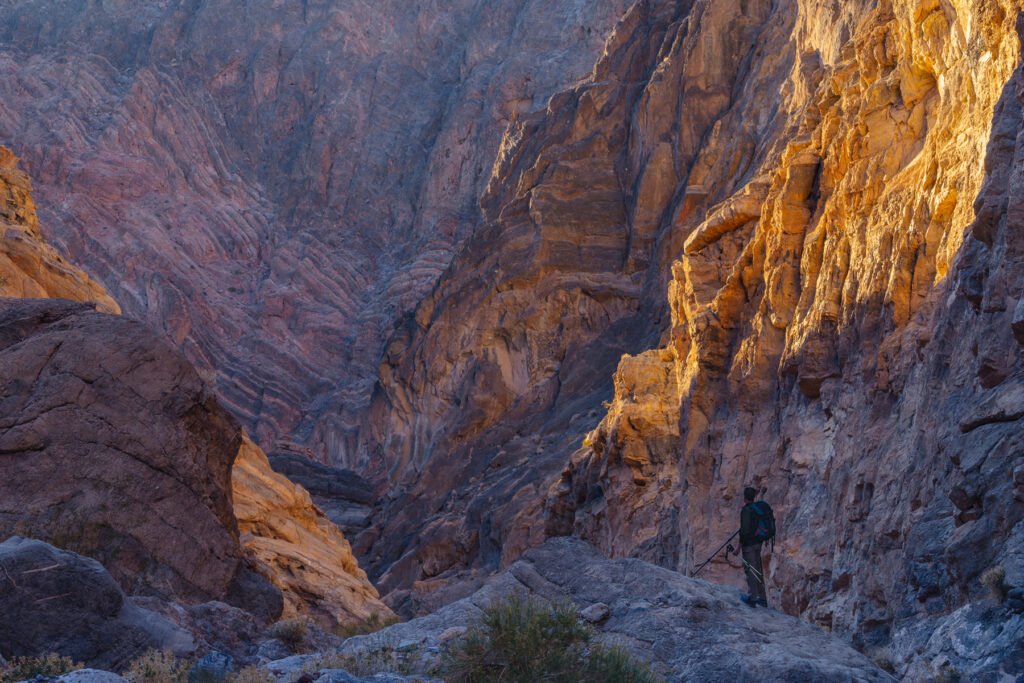by Guy Tal

This is an excerpt from the book Be Extraordinary: Philosophical Advice for Photographic and Other Artists

Photographer Jay Maisel offered what I believe to be one of the best bits of advice for any artist. He said, “If you want to take more interesting photos, become a more interesting person.” Taking the liberty of generalizing Maisel’s statement beyond just the medium of photography, I think it remains just as true in this broader form: If you want to make more interesting art, become a more interesting person. Keen readers may perhaps wonder whether I mistyped the title of this essay. I did not. People don’t become interesting in a vacuum. To become a more interesting person, you must first become a more interested person: a curious person, an adventurous person, a thinker, a learner, a seeker, an experimenter, an inventor, a skeptic, an investigator, a rebel. You must be willing to examine your values and convictions, to consider them against other ideas and evidence, and to adapt, refine, or even change your views, your work, and your life if your examinations reveal errors in your thinking or better, more authentic ways of experiencing the world and making meaning of it.

Creative Courage
To become a more interested person is, to borrow a term from Rollo May, to evolve creative courage. In his words: “Whereas moral courage is the righting of wrongs, creative courage, in contrast, is the discovering of new forms, new symbols, new patterns…” Painter and educator Robert Henri expressed a similar sentiment in his book The Art Spirit. He wrote:
When the artist is alive in any person, whatever his kind of work may
be, he becomes an inventive, searching, daring, self-expressing creature.
He becomes interesting to other people. He disturbs, upsets, enlightens,
and he opens ways for a better understanding. Where those who are not
artists are trying to close the book, he opens it, shows there are still more
pages possible.
The world would stagnate without him, and the world would be beautiful
with him; for he is interesting to himself and he is interesting to others.
What interests you?
What interests you besides the technical or social aspects of your art? How much do you know about your subjects? The history of your medium? The musings of great artists and thinkers that came before you? Current thinking about art by subject matter experts? The science behind artistic expression? Correlations and differences between your medium of choice and other art media? Whatever it is, whether related directly to your work or not, dedicate time to study it in depth—to read about it, to think about it, to mine it for meaning as deeply as you can, and to consider its implications. But don’t stop there. Once you have learned enough about one subject, switch to another.
Mystery
Beyond just becoming familiar with known aspects of art and of your medium, also strive to introduce mystery into your life and work. Define the boundaries of your unknown and contemplate ways to investigate beyond them, to express your questions and doubts in your art, to contemplate what the answers might be and how you can make inroads toward exploring and discovering them. Ask yourself big questions about art and life, even questions you may not expect to find answers for. “The job of the artist,” remarked Francis Bacon, “is always to deepen the mystery.” Painter Georges Braque agreed, saying, “If there is no mystery, then there is no poetry, the quality I value above all else in art.” Photographer Wynn Bullock explained the personal value of mystery:
Searching is everything—going beyond what you know. And the test
of the search is really in the things themselves, the things you seek to
understand. What is important is not what you think about them, but
how they enlarge you.
Schopenhauer, in his essay “The Wisdom of Life,” explained why the most important factor in shaping your experiences—whether they are good or bad, shallow or deep, meaningful or mundane—is your own personality. Similar circumstances may lead different people to different interpretations, depending on their attitudes: whether they are willing to open themselves up to powerful emotions; whether they are jaded or cynical; whether they immerse themselves in their experiences and contemplate their deeper meanings, or become distracted by other activities or concerns.
According to Schopenhauer, what a person is—the sum of a person’s temperament, health, ethics, intellect, sensitivity, knowledge—is by far the most important factor in determining the quality of a person’s experiences, rather than such factors as wealth or possessions, or the opinions of other people. Personality—what you are—is also the one thread that runs through and binds all your experiences, and therefore has the greatest effect on your sense of meaning and happiness in life. Explaining the importance of taking deep interest in things to elevate your life, Schopenhauer wrote:
The world in which a man lives shapes itself chiefly by the way in which
he looks at it, and so it proves different to different men; to one it is
barren, dull, and superficial; to another rich, interesting, and full of
meaning. On hearing of the interesting events which have happened in
the course of a man’s experience, many people will wish that similar
things had happened in their lives too, completely forgetting that they
should be envious rather of the mental aptitude which lent those events
the significance they possess when he describes them.
Open your eyes. Train yourself to become mindful of every nuance of your experience as it happens—your perceptions, your emotions, your senses—and seek the deepest pleasure and meaning in it that you can find. Resist being distracted. Don’t casually dismiss any aspects of your experience that may seem on their face unimportant or unexciting. Research and study anything you come across that may be relevant to your work or your experiences that you feel you should understand better.

Consider that you get to decide for yourself whether anything is important, exciting, or interesting. Learn as much as you can, about whatever interests you, and always stay open to discovering—or developing—new interests. Find out what the great thinkers—people with deeper knowledge, insight, or sensitivity than you, whether they are philosophers or scientists or artists or anyone who has discovered deeper meaning in anything—have, or had, to say. Assimilate from them whatever fits with your own personality and enriches your life. Wonder about everything, no matter how ordinary or obvious it may seem. Find out how flowers grow, the meanings of words like “art” and “creativity,” what scientists have learned about the nature of consciousness, what quantum mechanics is all about, why other people may have opinions and beliefs that are different from yours, or anything else that enters your mind that you wish you understood better or that just makes you go, “huh.”
Become a more interested person and you will become a more interesting person.
If you are interested in reading more about creating meaningful art, this essay is from Guy Tal’s book
Be Extraordinary: Philosophical Advice for Photographic and Other Artists

